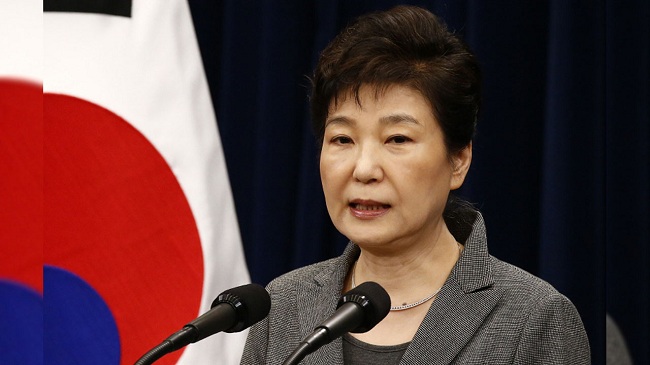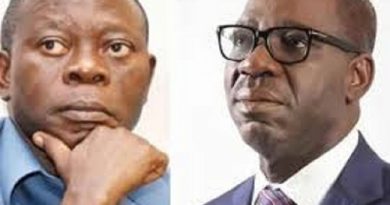Ex-South Korean Leader Park, Samsung Heir On Trial For Corruption
South Korea’s top court ordered new trials Thursday for former President Park Geun-Hye and Samsung heir Lee Jae-Yong over the corruption scandal that brought her down, in a blow to the world’s biggest smartphone and memory chip maker.
Park is serving a 25-year jail term after being convicted last year on bribery and abuse of power charges.
But Lee, whose sprawling conglomerate is vital to the health of the world’s 11th-largest economy, had many of his convictions quashed on appeal in February 2018 and was released after being given a suspended sentence.
South Korea’s Supreme Court on Thursday sent all three of their cases back for new proceedings, saying that errors had been made in the judgments.
After a 10-month trial — in which she boycotted most of the proceedings in protest at being held in custody — Park was convicted in April last year of receiving or demanding more than $20 million from conglomerates, sharing secret state documents, “blacklisting” artists critical of her policies, and firing officials who resisted her abuses of power.
She was sentenced to 24 years, later extended for an additional 12 months.
But the Supreme Court ruled that under the country’s public official election act, courts must rule separately on bribery accusations when incumbent or former presidents face multiple criminal charges.
“We send the case back to the Seoul High Court,” said chief justice Kim Myeong-su.
South Korean media warned that the ruling might not work out in her favour, as if she is convicted again in two separate verdicts she could face a longer total sentence in total.
Millions of dollars
Samsung is by far the biggest of the family-controlled conglomerates that dominate business in South Korea, and crucial to the country’s financial health.
Lee is vice-chairman of its flagship subsidiary Samsung Electronics, and his case centered on millions of dollars the group paid Choi, allegedly for government favours such as ensuring a smooth transition for him to succeed his ailing father.
He was initially jailed for five years in 2017 before his successful appeal, which chief justice Kim said: “misunderstood the law on bribery”.
In a key section of Thursday’s ruling, the court said three horses worth 3.4 billion won (US$2.8 million) that Samsung Group donated for the equestrian training of Choi’s daughter did amount to bribes.
It was not immediately clear whether Lee would be returned to prison pending his new trial but analysts said the ruling could complicate management at Samsung Electronics.
“It will slow down the decision-making process for all matters,” Ahn Ki-Hyun, vice president of the Korea Semiconductor Industry Association, told AFP.
Samsung Electronics already faces a weak global chip market and challenges from export restrictions imposed by Tokyo amid a long-running dispute between the neighbours over wartime history.
Japan’s move threatens to disrupt supplies of key chemicals vital to memory chip production and Lee has called it a “crisis”, visiting Tokyo to seek to secure materials.
Samsung Electronics said in a statement that it “deeply regrets” causing concern.
“We will renew our commitment to carrying out the role of a responsible corporate citizen and will avoid a recurrence of past mistakes,” it said, without directly addressing the verdict or its possible consequences.
The firm reported a 53 percent drop in profits in the second quarter. Its shares closed down 1.7 percent after the ruling.
Mass protests
Choi – who became close to Park through her father, a shadowy religious figure – received a 20-year prison term last year for using her presidential connections to force companies including Samsung to donate to foundations she controlled, among other charges.
The court also sent her case back for a retrial.
Hundreds of Park’s supporters gathered outside the heavily guarded courtroom for Thursday’s ruling, waving South Korean flags and carrying signs reading: “Stop the human rights violation against President Park Geun-Hye”.
The daughter of assassinated dictator Park Chung-hee, Park took office in 2013 as a conservative icon who cast herself in the role of the daughter of the nation — incorruptible and beholden to none.
Less than four years later she had been impeached, stripped of all her powers and ousted from office on the back of months-long mass protests that brought millions onto the streets across the country.
Her left-leaning successor Moon Jae-in was swept to power by the public backlash against her and her conservative party.




